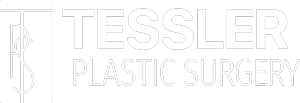The rate at which you heal after undergoing breast augmentation in Scottsdale is highly dependent on your diet. Eating proper food means a healthy body, hence healthy bodily functions that speed up the recovery process and prevent certain complications. Doctors recommend that you focus on light but healthy meals following breast enlargement treatment. Below are some of the foods that are known to be helpful after breast augmentation and any other surgery for that matter.
1. Proteins
After breast augmentation surgery, it is important to maintain a high protein diet. Proteins are known to be the ideal body-building foods. Some come in supplementary forms such as those in shakes while others are in a lean form that gives the body minerals and vitamins required to keep the metabolism operating smoothly. Following breast enlargement surgery, you have scars and wounds that need to fully heal so you can get back to routine life. Consuming foods rich in proteins helps in tissue and cell regeneration, fighting off infections, and incision healing.
2. Seafood
Seafood meals include all the edible aquatic life such as shellfish, shrimp, salmon, tuna, and Alaskan pollock. It is rich in nutrients such as omega-3, calcium, phosphorus, and minerals such as iodine, zinc, potassium, and magnesium. They help the body undergo a faster recovery by providing it with the necessary micronutrients. So make sure to include seafood portions in your breast augmentation recovery diet.
3. Fiber
Surgery causes drastic changes in the body and it takes some time before full re-adjustment. One of the shifts the body experiences is disruptions in bowel movements. This can result in constipation, abdominal pain, or diarrhea. Eating food with plenty of fiber helps reduce the rate at which these changes manifest in your system. Examples of such foods include apples, oatmeal, pears, legumes, and prunes. Make sure that you are drinking enough water after consuming fiber-rich foods.
4. Carrots
Carrots are a great source of beta-carotene and other vitamins. Beta-carotene converts to Vitamin A and helps the body mend worn-out cells and tissue, repair damaged skin, and restore mucous membranes. Other potential sources of beta-carotene include mangoes, sweet potatoes, and cantaloupe.
5. Yoghurt
Post-surgery, you will be put under medication to protect against infections, relieve pain, and strengthen your immunity. Sometimes, these medicines irritate the stomach, particularly the intestines. When you drink dairy products such as yogurt and milk, the stomach is able to balance between the medicinal products and chemicals produced by the digestive system. They also protect the body from a widespread bacterial infection in the intestines and bowels called c-diff. More so, dairy products equip the body with calcium which strengthens bones and teeth, helps the muscles move, and enables the nerves to relay messages from the brain to other body parts.
6. Mushrooms
Mushrooms are a great source of energy for the body. There are different types of mushrooms namely shiitake, portobello, and cremini. Each one of them is rich in vitamins such as folate, thiamine, riboflavin, niacin, and pantothenic acid. Mushrooms help the blood produce red blood cells that distribute oxygen throughout the body needed to heal the scars and wounds left from the surgery. They also encourage and support a healthy immune system because they reduce inflammatory proteins in the body.
7. Citrus Fruit and Bell Pepper
Citrus fruit and bell pepper are rich in vitamin C that is needed in the body for the growth and repair of damaged tissues, especially after surgery. Its other functions include healing of wounds by forming scar tissues, general absorption of body iron, repair and maintenance of bones, cartilages, and teeth, as well as helping in the formation of a protein that makes the skin, tendons, blood vessels, and the ligaments. Other potential sources of vitamin C include broccoli and strawberries.
8. Papaya and Pineapples
Papayas and pineapples are rich in nutrients, enzymes, and antioxidants that help the body fight against diseases and inflammation. They boost the body’s immunity, help the digestion process, and speed up healing from surgery. Papaya and pineapples contain the enzyme bromelain which helps shrink belly fat and break down excessive proteins. This in turn reduces the swelling effect that occurs after surgery.
9. Cruciferous Vegetables
Cruciferous vegetables are low in calories but rich in vitamin C, E, K, folate, and fiber. They contain phytonutrients – which are plant-based compounds that assist lower the body’s inflammation. Since vegetables form the basic part of our daily meals, cruciferous types have gained popularity because of their potential to fight cancerous cells. Some potential sources of cruciferous vegetables include broccoli, cabbage, arugula, kales, and cauliflower.
10. Rich Colored Fruits
Rich colored fruits supply the body with great amounts of antioxidants which help fight free-radical products that might affect the body after surgery. They do so by reducing extreme oxidation levels. Such fruits include cherries, blackberries, pomegranates, and blueberries. They also help with the healing of incisions and scars.
11. Pumpkins
Pumpkins are a great source of minerals, antioxidants, and vitamins. They are extremely healthy since they are low in fats and calories thus favoring weight loss. They contain high zinc levels which promote a healthy immune system and are also important for protein synthesis. What’s more, pumpkins are known to promote heart and skin health, as well as protect eyesight.
Conclusion
It is okay for patients to expect a smooth and quick recovery after surgery. But keep in mind that the recovery rate is highly dependent on the kinds of food you eat. Therefore, to be on the safe side, individuals recovering from breast augmentation surgery should be keen on their diet.

